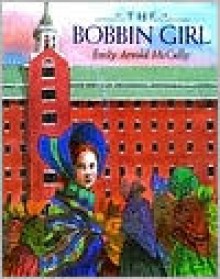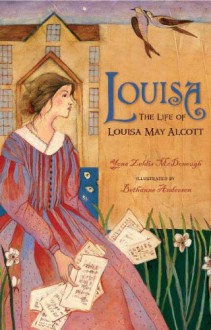
A very nice primer on early American factory life.
Rebecca is ten years old and works a thirteen hour day at Lowell factory as a bobbin girl. Her mother runs a company boarding house for female employees. Rebecca may be young, but she is aware. She sees that, on one hand, the factory provides a truly rare opportunity for young women - a chance to earn money and gain a little independence and maybe even an education. On the other hand, work in the factory is physically demanding and potentially dangerous. Furthermore, the workers come from already marginalized groups (women, children, immigrants), have very little power, and are easily taken advantage of.
One worker in particular, Judith, stands out to Rebecca. Judith is a clever, principled and strong-minded young lady who actually incites the factory's first "turn out" (strike). I hope it's not too much of a spoiler, but anyone who knows even a little American history knows that it would take more than just one strike to effect great change for workers. However, these early rebellions did remain in the worker's consciousness and sowed the seeds for future and more effective worker's rights movements.
The author's note provides a good amount of context and background information. For example, Rebecca is a fictional character, but is loosely based on a real-life 'bobbin doffer' Harriet Hanson Robinson. Like Rebecca, Robinson started as a bobbin girl and took part in a strike. And like Judith, she took advantage of the educational opportunities that Lowell provided and grew up to be an author and activist.
*I'd recommend this for ages 8 to 12. It works as a fantastic read aloud as there is much to ponder and discuss.
*Next, we're reading Lyddie by Katherine Patterson (a chapter book about Lowell factory life) so it will be interesting to compare the two.

 Log in with Facebook
Log in with Facebook 







